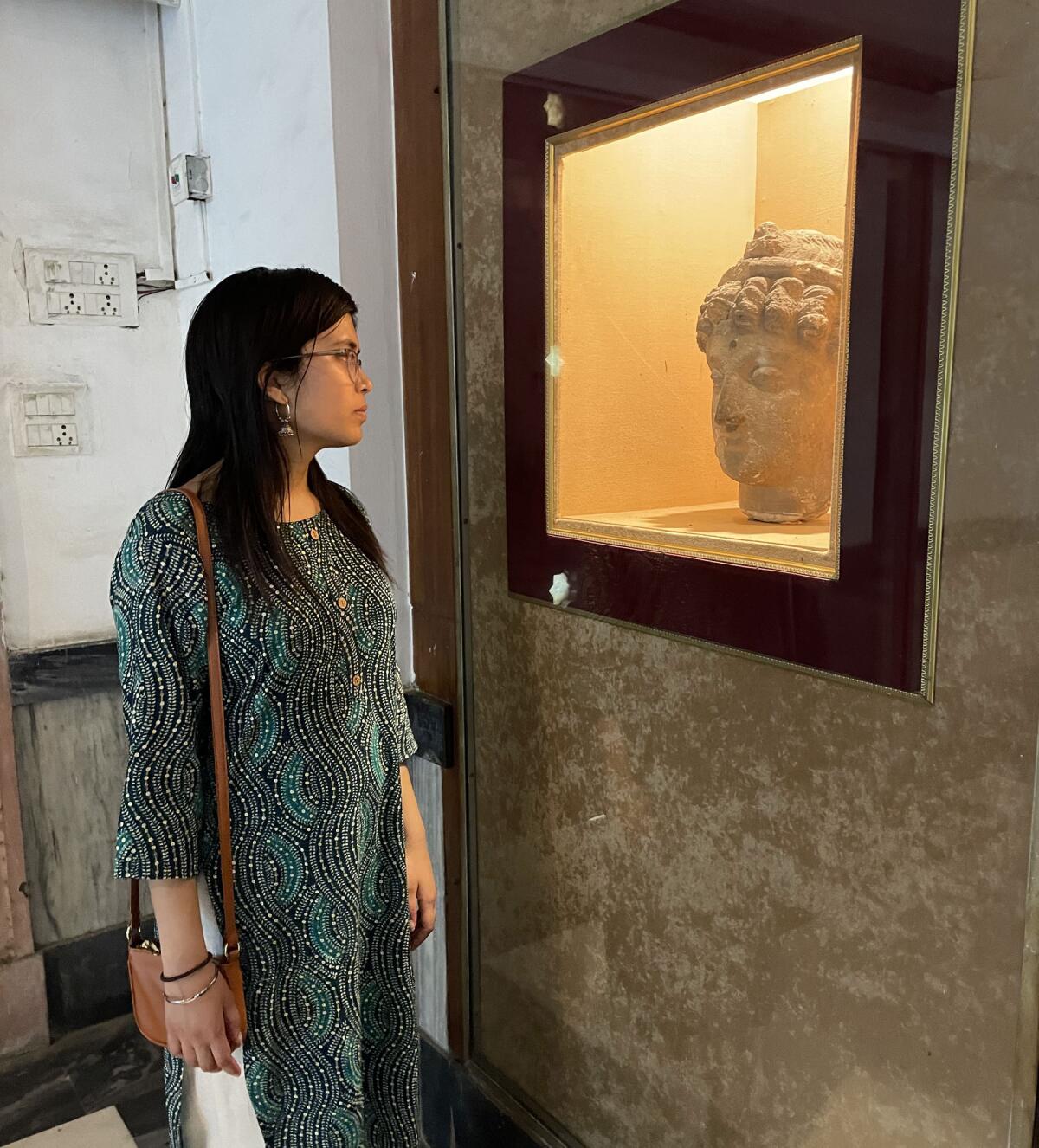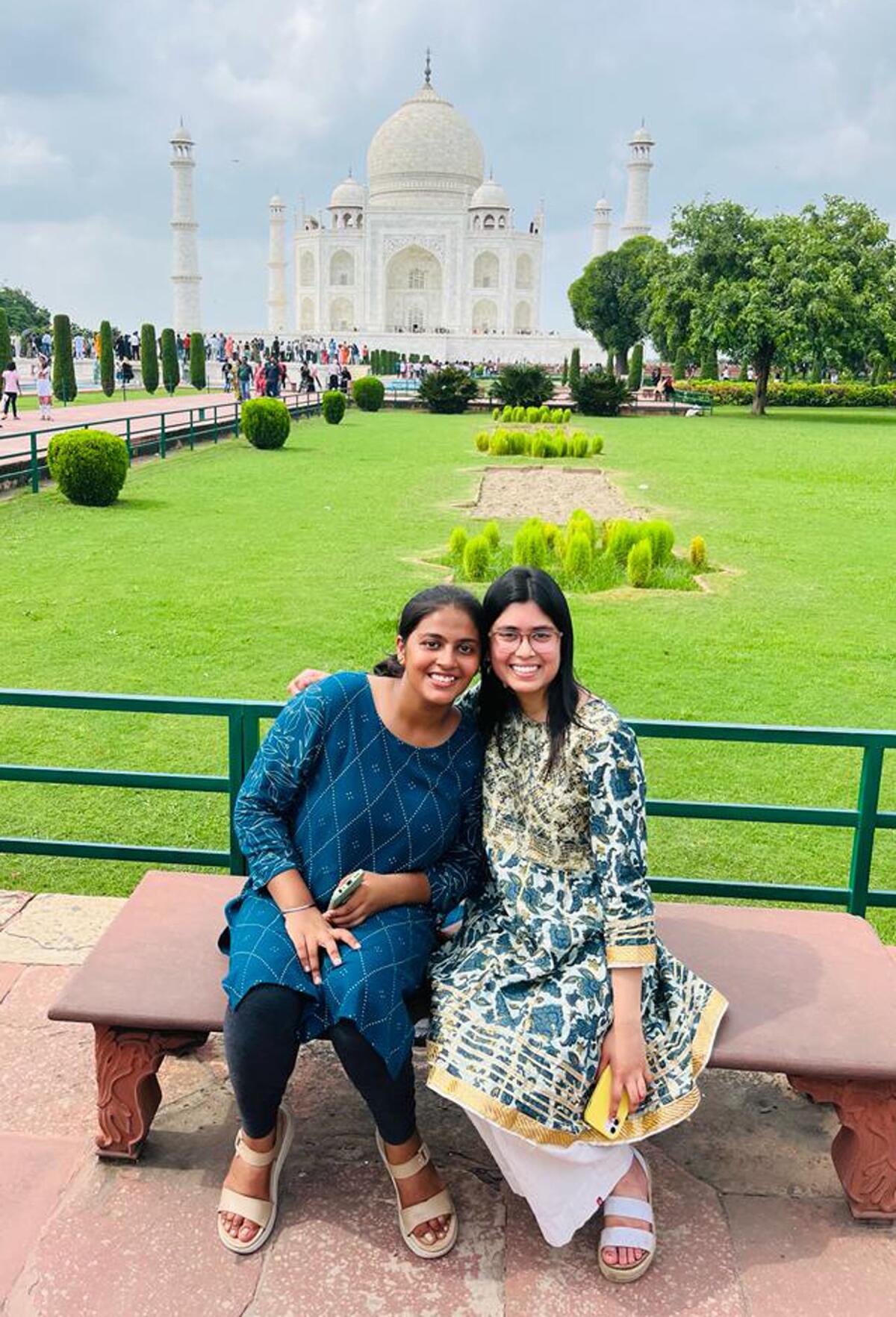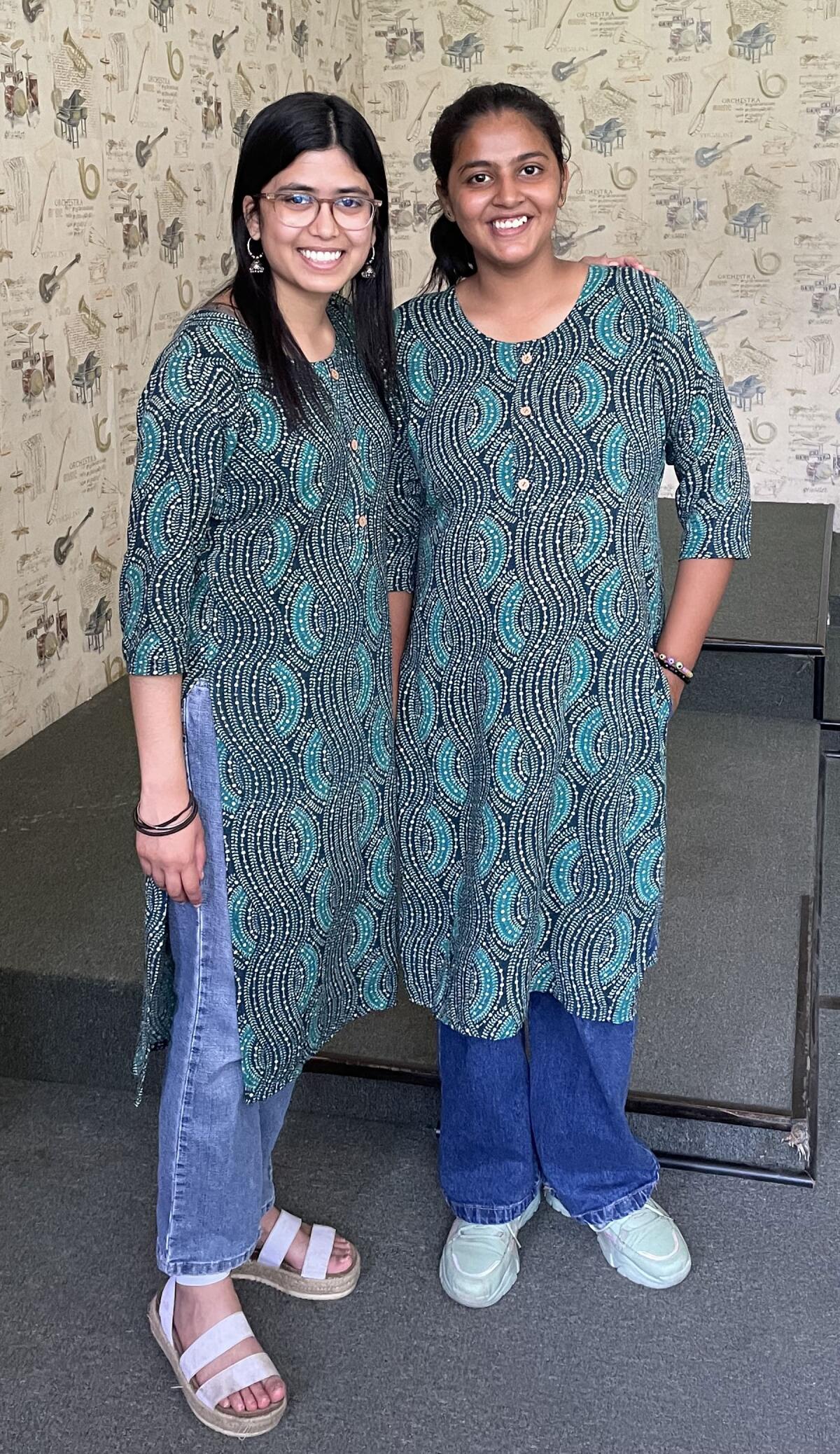[ad_1]
Nirja Trivedi spent six weeks this summer time as an change pupil in India. One of the issues Trivedi discovered was Hindi, a language her mother and father can communicate however she by no means discovered.
The Westview High senior was amongst 442 highschool college students chosen from amongst hundreds all through the United States to obtain a National Security Language Initiative for Youth Program scholarship by means of the U.S. Department of State’s Bureau of Educational and Cultural Affairs.
“Not only did I learn a new language, but I also participated in a life-changing cultural exchange that has inspired me to pursue a career in international relations,” mentioned Trivedi, 17, who this faculty 12 months is a pupil member of the Poway Unified School District Board of Education and president of Westview High’s speech and debate crew.
The daughter of Torrey Highlands residents Urvi and Jayimin Trivedi was amongst 15 college students despatched to India to study Hindi. Her mother and father don’t communicate it together with her at residence; at school she studied Spanish from eighth grade by means of sophomore 12 months.
“(Hindi) is definitely very different,” she mentioned, explaining that it makes use of characters as an alternative of letters. “The hardest was to learn the alphabet’s characters because it is a phonetic language too. The sounds come together to form words … like in Chinese.”
Languages provided by means of this system are Arabic, Mandarin, Hindi, Indonesian, Korean, Persian (Tajiki), Russian and Turkish.
Trivedi mentioned she began searching for alternate options to a summer time internship after talking together with her highschool steerage counselor.

Nirja Trivedi an historical statue of the Buddah whereas visiting the National Museum in New Delhi, India.
(Courtesy of Nirja Trivedi)
“In the fall of junior year, many students apply for an internship for the next summer,” she mentioned. “San Diego is big for biotech and technology, for which many are applying. I knew that I was interested in international relations and government, but it is harder to get an internship at a government agency than a company.”
Trivedi mentioned summer time change applications she discovered value about $6,000, an expense she didn’t wish to incur with school a 12 months away. The National Security Language Initiative for Youth program lined the six weeks she could be residing in India with a number household.
Because her mother and father are initially from India — she is the primary technology born within the U.S. — Trivedi mentioned she was desirous about learning extra about South Asian cultures.
“By learning Hindi that is the gateway to learning about the politics and culture,” she mentioned.
To put together for the July 1 to Aug. 13 go to, Trivedi began studying the Hindi alphabet and easy phrases by means of a web based course. Students in this system additionally spent June 27-30 in New York, the place they discovered about their host nation’s cultural norms.
Trivedi mentioned she visited India a pair instances together with her household when she was very younger however doesn’t bear in mind a lot from these journeys.
Her host household included a 15-year-old lady, with whom Trivedi attended faculty because the faculty 12 months begins earlier in India, and the lady’s youthful brother, mother and father and grandfather. The household lives in a two-bedroom condominium in an city neighborhood of New Delhi.
While English is spoken on the faculty she attended, the household spoke Hindi. Initially, communication was tough, however her Hindi abilities improved. Within a couple of weeks she was having half-hour conversations after faculty together with her host mom, she mentioned.
Exchange college students spent their faculty days learning Hindi.

Host sister Manya Saini and change pupil Nirja Trivedi visiting the Taj Mahal in India.
(Courtesy of Nirja Trivedi)
Trivedi and different program members went on journeys to get immersed within the tradition. She visited the Taj Mahal, which was 5 hours away by bus, and the National Museum. She mentioned she loved procuring within the markets, the place there have been many handicraft and meals stalls. Trivedi mentioned she discovered methods to negotiate costs with distributors, one thing anticipated there.
“Half was about learning the language and half about living in a different country, so we could learn the customs and their ways of life,” Trivedi mentioned.
Trivedi mentioned as a result of she is of Indian heritage she thought she would mix in slightly than being seen as a customer. But she quickly discovered that together with her mannerisms she stood out as being “so American,” as her host sister instructed her. Her host sister and buddies seen Trivedi was cautious when crossing streets, looking for automobiles, whereas they jaywalked, she mentioned.
“It is funny,” Trivedi mentioned. “Despite me looking the same way as them I was so different.”
Trivedi mentioned she discovered loads.
She mentioned these in India are primarily vegetarians, many for non secular causes. While she is just not, Trivedi mentioned she and her fellow change college students over time discovered to love the vegetarian dishes and a few selected them even when a meat dish was provided.
“Red meat is really rare because eating beef is taboo … since the cow is sacred. That is why they don’t eat beef,” she mentioned.

Exchange pupil Nirja Trivedi together with her host sister, Manya Saini. They purchased matching clothes throughout a procuring journey in India.
(Courtesy of Nirja Trivedi)
The expertise additionally gave her a greater understanding of her household. Trivedi by no means understood why her mom, who got here to the U.S. as a toddler, insisted she have her hair tied again or in braids, slightly than put on it free. She discovered that in India, ladies need to have their hair tied again at school and it was a lifelong behavior her mom developed that had been handed down by Trivedi’s grandmother.
The program made her much more desirous about talking Hindi at residence and learning it in school, she mentioned.
But for now, Trivedi has yet another 12 months of highschool courses and actions. She additionally lately accomplished her Girl Scout Gold Award undertaking and is wanting ahead to receiving Girl Scouting’s highest honor in the course of the council ceremony subsequent summer time.
[adinserter block=”4″]
[ad_2]
Source link